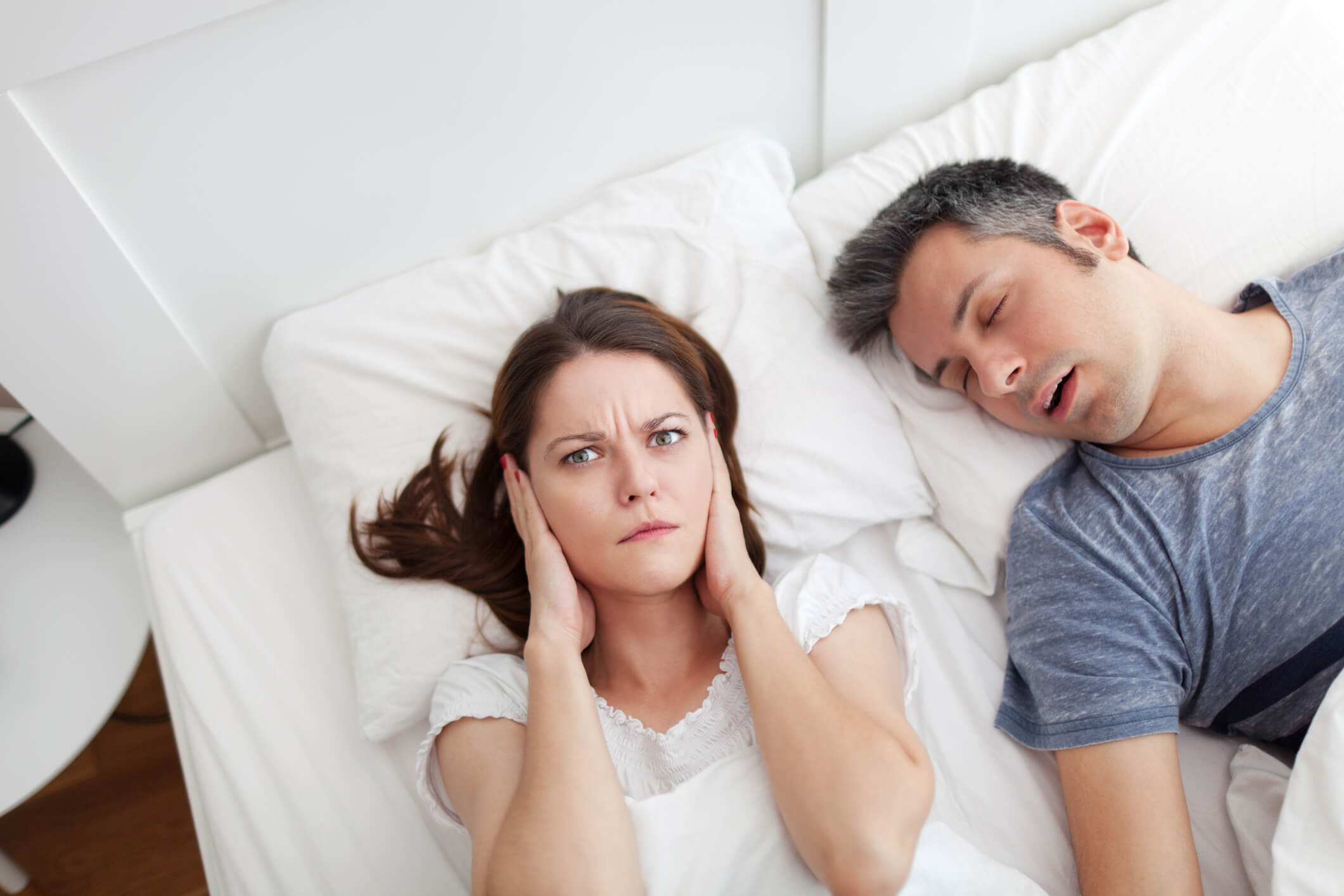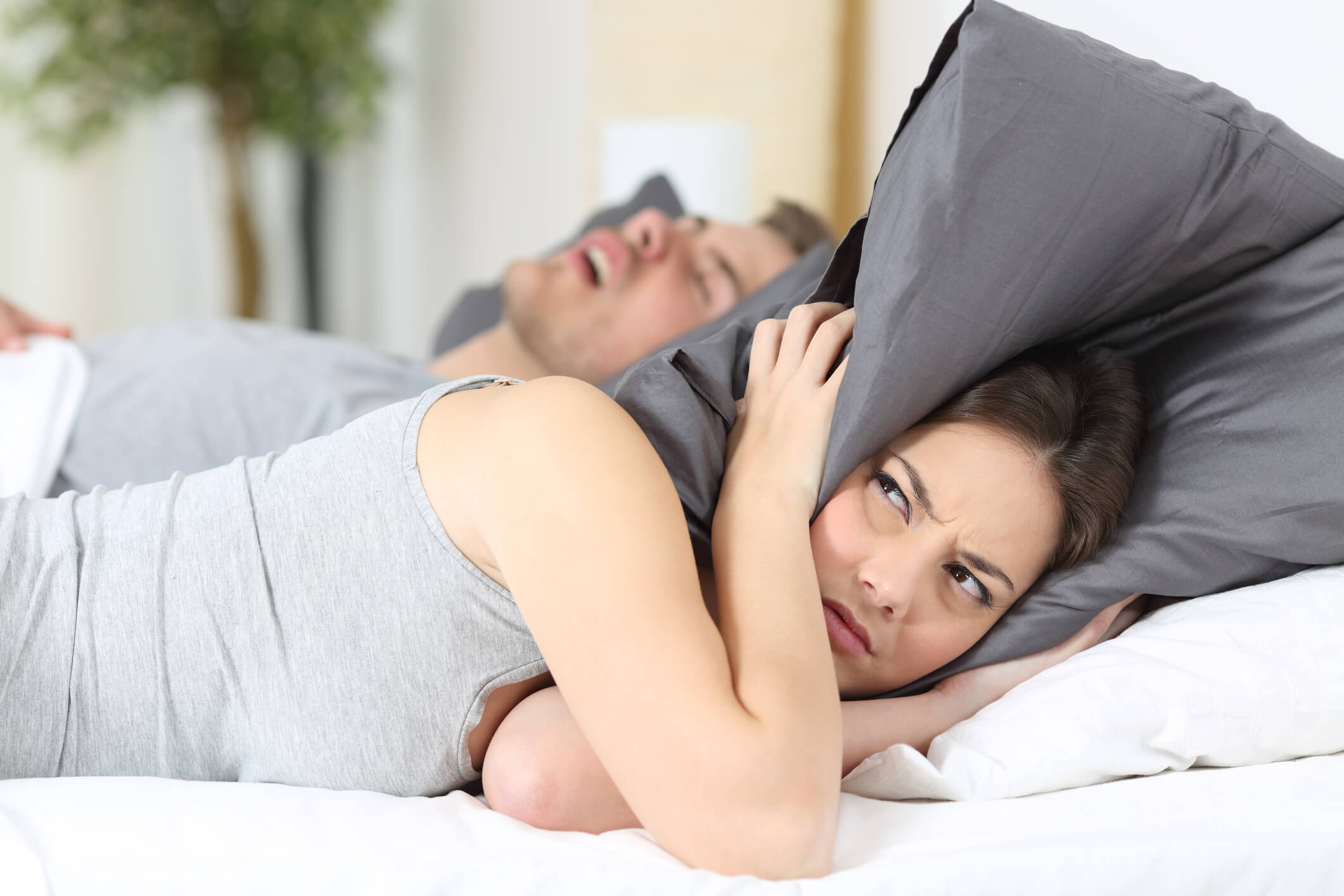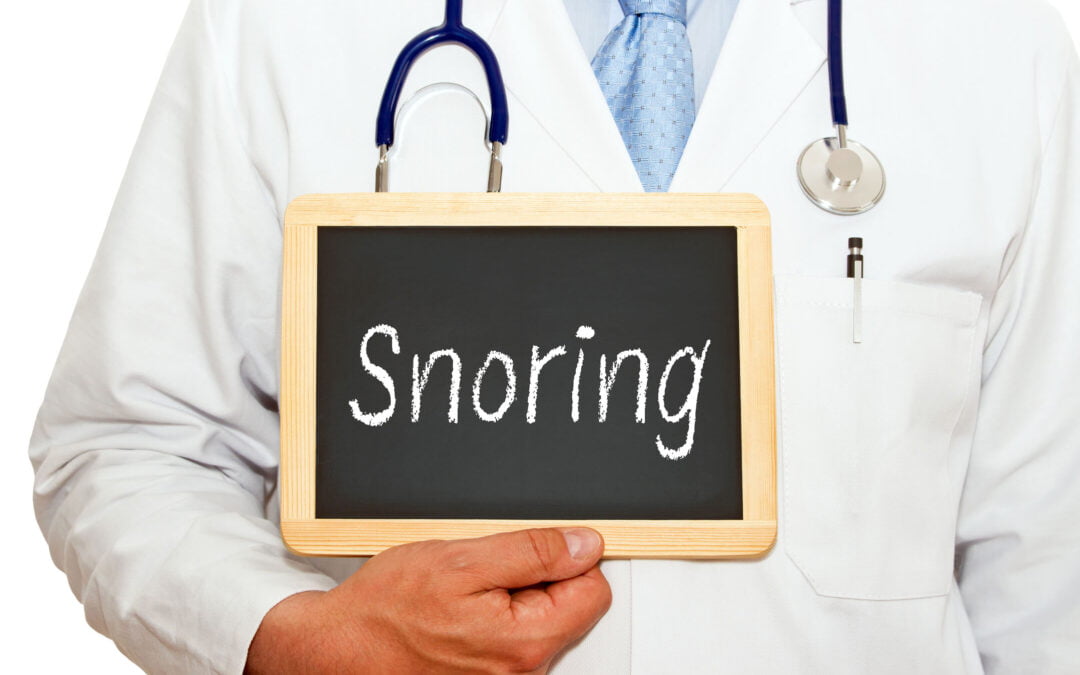Effective Snoring Solutions for Better Sleep and Breathing
Millions of individuals worldwide suffer from snoring, a widespread issue that interferes with sleep and hurts general health. It can be unpleasant and result in less restful sleep, whether you snore or share a bed with someone who does. The good news is that snoring may frequently be treated and avoided. With the help of sleep medicine experts and doctors, a proper diagnosis can be made to identify the underlying causes of snoring. Lifestyle changes, such as adjusting sleep positions or addressing nasal congestion, can be highly effective. It’s essential to understand your rights regarding your health and seek the best treatment options. You can improve your sleep and quality of life by consulting with experts in the field. Here are some tips to help you understand the causes of snoring and how to stop it based on the latest research and expert recommendations.
What Causes Snoring?
You snore when the airflow between the mouth and nose is partially blocked as you sleep. This restriction produces the well-known snoring sound when the throat’s tissues vibrate. Snoring can be caused by several things, such as:
- Nasal Congestion: Snoring can result from blocked nasal passages caused by allergies, colds, or sinus infections, which make it more difficult to breathe through the nose.
- Obesity: Too much weight around the neck can compress the airways, narrowing them and making snoring more likely.
- Sleep Position: Snoring can result from your tongue and soft palate collapsing to the back of your throat when you sleep on your back.
- Aging: Our throat muscles weaken as we age, leading to snoring and airway obstruction.
- Alcohol and Sedatives: Sedatives and alcohol relax the muscles in your throat, increasing the likelihood of snoring.
How Can Snoring Be Fixed?
There are several strategies you might attempt if you’re trying to reduce or stop snoring. While some strategies entail medical treatments, others concentrate on lifestyle modifications. The following are a few of the best tactics:
Adjust Your Sleep Position
One of the easiest methods to lessen snoring is to avoid sleeping on your back. When you lie on your back, your airway may become blocked because the tongue and soft palate collapse backward due to gravity. Instead, try sleeping on your side. To stay on your side, sew a tennis ball into the back of your pajamas or use a body cushion.
Keep Your Weight in Check
Being overweight, particularly around the neck, might strain your airway and make snoring more likely. Losing weight with a balanced diet and consistent exercise can lessen snoring and enhance the quality of your sleep.
Address congestion in the nose
If nasal congestion is a contributing factor, treating the underlying cause of your snoring may be helpful. To clean your nasal passages before bed, use a humidifier, a saline nasal spray, or a decongestant. Another option is to use nasal strips, which facilitate better airflow by opening the nostrils.
Steer Clear of Sedatives and Alcohol
Snoring may result from the relaxation of the muscles in your throat caused by alcohol and sedatives. To lessen your risks of snoring, avoid these items, especially in the hours before bed.
Maintain Proper Sleep Habits
Establishing a regular sleep schedule can lessen snoring. Aim for 7–9 hours of sleep every night, go to bed at the same time every day, and wake up at the same time every day. A proper sleep schedule is crucial since lousy sleep habits can exacerbate snoring.
Put on a Mouthpiece That Prevents Snoring
Mandibular advancement devices (MADs) are one of several over-the-counter gadgets that can help lessen snoring. By shifting your jaw and tongue, these mouthpieces help you maintain an open airway while you sleep. Speak with a dentist or other healthcare professional to determine the best choice.
Consider Medical Treatments
Medical therapy can be required if lifestyle modifications are ineffective or if your snoring is severe. Among the choices are:
- Continuous Positive Airway Pressure (CPAP): This machine keeps your airway open while you sleep by continuously pumping air via a mask. People with sleep apnea, a disorder that results in loud snoring and breathing disruptions, frequently use it.
- Surgery: In some situations, surgical techniques such as uvulopalatopharyngoplasty (UPPP) or laser-assisted valvuloplasty (LAUP) may be advised to remove or tighten the throat tissues producing the obstruction.

Medical Treatments and Procedures
While many people can use lifestyle modifications and home remedies to lessen or completely stop snoring, some may need medical treatments or procedures, mainly if the snoring is severe or connected to underlying medical issues like sleep apnea. Medical interventions that increase airflow and lessen airway blockage can relieve chronic snoring. Here are some of the most popular medical procedures and treatments for snoring.
Positive Airway Pressure Continuously (CPAP)
One of the best treatments for snoring caused by sleep apnea is a CPAP machine. Breathing disruptions brought on by sleep apnea can result in loud snoring, choking, and gasping for air. A CPAP machine delivers continuous air through a mask to prevent snoring and enhance sleep quality.
How it operates:
- The constant airflow provided by the CPAP machine, worn while you sleep, keeps your airway open.
- People with obstructive sleep apnea (OSA), a disorder in which the airway becomes clogged as they sleep, benefit from it the most.
Advantages:
- Offers prompt relief from sleep apnea-related snoring.
- Lessons are about daily weariness and enhancing the quality of sleep.
Cons:
- Wearing a mask causes discomfort for some people.
- It needs to be cleaned and maintained regularly.
Mandibular Advancement Device (MAD)
An oral appliance called a Mandibular Advancement Device (MAD) moves the tongue and lower jaw to maintain an unobstructed airway while you sleep. This device works exceptionally well for patients whose snoring is brought on by the relaxation of their tongue and throat muscles, obstructing their airways.
How it operates:
- The MAD, which a dentist fits, moves the lower jaw forward gradually.
- This lessens snoring by preventing the airway from collapsing as you sleep.
Advantages:
- Simple to use and non-invasive.
- This could be a good substitute for many who find CPAP devices uncomfortable.
Cons:
- Over time, it might result in tooth movement or jaw pain.
- For those with severe sleep apnea, it is ineffective.
Nose Surgery
Nasal surgery could be advised if snoring is caused by nasal congestion or structural problems. A deviated septum, nasal polyps, or other obstructions that prevent airflow through the nasal passages can be fixed surgically.
Typical practices consist of:
- A deviated septum, which can obstruct airflow and cause snoring, can be corrected surgically with a septoplasty.
- The process of shrinking the turbinates, which are structures in the nose that can grow and impede airflow, is known as “turbinate reduction.”
- Removing nasal polyps obstructing the nasal passageways is known as a nasal polypectomy.
Advantages:
- It can offer sustained alleviation of snoring brought on by obstructions in the nose.
- Enhances airflow and breathing in general.
Cons:
- Recuperation time following invasive surgery.
- Complications could include bleeding or infection.
Uvulopalatopharyngoplasty (UPPP)
A surgical operation called uvulopalatopharyngoplasty (UPPP) tightens or removes extra tissue in the throat that might be blocking the airway and contributing to snoring. This technique is frequently advised for those with moderate to severe sleep apnea or snoring who have not responded to conventional therapies.
How it operates:
- To open the airway, the surgeon removes or reshapes tissue in the throat, such as the tonsils, soft palate, and uvula, which is the little tissue in the rear of the mouth.
- This lessens the tissue vibration that results in snoring.
Advantages:
- Useful for those with severe blockage of the throat.
- It can lessen snoring and enhance breathing.
Cons:
- It has a recovery period and calls for general anesthesia.
- May result in swallowing difficulties or a change in voice.
- Over time, snoring may resurface, and success rates vary.
Uvulopalatoplasty with Laser Assistance (LAUP)
A less invasive substitute for UPPP is laser-assisted uvulopalatoplasty or LAUP. Using a laser, the extra tissue in the throat that causes snoring is reduced or eliminated. This surgery is usually performed on people with mild to severe snoring or sleep apnea.
How it operates:
- A laser cuts or shrinks the uvula and soft palate tissue to create a larger airway.
- The operation can be done as an outpatient procedure and is carried out under local anesthetic.
Advantages:
- Not as intrusive as conventional surgery.
- Quick recuperation.
Cons:
- For severe snoring or sleep apnea, it might not work.
- It can be necessary to receive several treatments.
Radiofrequency Ablation (RFA)
A minimally invasive technique called radiofrequency ablation (RFA) uses radiofrequency energy to tighten and shrink the throat tissues that cause snoring. People who frequently have mild to moderate tissue relaxation-induced snoring have this surgery.
How it operates:
- After a tiny probe is placed in the throat, radiofrequency energy heats and shrinks the tissues, reducing the likelihood that they will vibrate and produce snoring.
- Patients can usually go home the same day after the treatment, performed under local anesthetic.
Advantages:
- Minimally invasive and non-operative.
- Short healing period and minor pain.
Cons:
- For the best results, several treatments could be necessary.
- Over time, snoring may return, and effectiveness varies.
Palatal Implants (Pillar Procedure)
Palatal implants—the Pillar procedure—stiffen the tissue and lessen the vibrations that cause snoring by placing tiny implants into the soft palate. This technique is usually advised for those who snore mildly to moderately.
How it operates:
- Under local anesthetic, tiny polyester implants are inserted into the soft palate.
- By making the tissue more rigid, the implants lessen snoring and vibration.
Advantages:
- Carried out under local anesthetic and with little invasiveness.
- Quick recuperation.
Cons:
- It might not work for everyone.
- The entire development of results could take several months.
Weight Loss Surgery
If obesity is causing snoring, weight-loss surgery, such as bariatric surgery, may be advised. Weight loss can improve airways and lessen snoring by reducing the amount of fat around the throat and neck.
How it operates:
- Weight-reduction surgery can lessen snoring and pressure on the airway by helping people lose a substantial amount of weight.
- People who are significantly overweight and have failed at other weight-loss techniques are usually given this consideration.
Advantages:
- It can offer sustained alleviation of obesity-related snoring.
- Enhances quality of life and general health.
Cons:
- Invasive processes carry a high risk.
- Calls for a dedication to long-term lifestyle adjustments.

When Is the Right Time to See a Doctor?
A more severe problem known as sleep apnea may be indicated if your snoring is loud, frequent, or accompanied by choking or gasping for air as you sleep. Short breathing pauses are a symptom of sleep apnea, a sleep disorder that can cause high blood pressure, daytime weariness, and other health issues. The severity of the condition can vary between men and women, and factors such as alcohol consumption may exacerbate sleepiness and the signs of sleep apnea. It’s important to schedule an appointment with a specialist or sleep provider for a thorough examination. Dr. George Brennan and other providers can assess your sleep quality, check for abnormal breath sounds, and determine the best action. Treatments such as a dilator or other medical services may be recommended depending on the findings. Don’t ignore the signs—seek the proper care to address your condition and improve your sleep.
Final Thoughts
Although snoring is a frequent problem, it doesn’t have to interfere with your sleep or adversely affect your health. You can lessen or completely stop snoring by addressing underlying sleep disorders and changing your lifestyle, such as sleeping in a different position, decreasing weight, and treating nasal congestion. Incorporating exercises or using a mouthguard at bedtime may also help. Studies have shown that various factors, including pillow choice, noise, and the presence of a bed partner, can influence snoring. If these approaches prove ineffective, medical interventions like dilators or CPAP therapy might be required. Sleep deprivation can also result from untreated snoring, so practicing healthy sleep habits is essential. Don’t let snoring impact your life or sleep quality, and take steps to improve your overall health and well-being.
Frequently Asked Questions
Is it possible to completely stop snoring?
Although it might not always be feasible to stop snoring altogether, many people can significantly lessen or even completely stop it by implementing appropriate sleep habits, keeping a healthy weight, abstaining from alcohol, treating nasal congestion, and sleeping in the correct position.
Is sleep apnea the cause of my snoring?
Not always. Many people snore without having sleep apnea, even though it is a typical indication of the illness. However, you should see a doctor for an evaluation if your snoring is loud, frequent, and accompanied by extreme daytime tiredness, gasping, or choking. This could be a sign of sleep apnea.
Can I reduce snoring with over-the-counter medications?
Certain over-the-counter drugs, including antihistamines or nasal decongestants, may lessen snoring brought on by allergies or nasal congestion. Before taking any drug, it’s crucial to speak with your doctor to be sure it’s safe and appropriate for your particular circumstances.
Is there a treatment for snoring?
Although lifestyle modifications, medical procedures, and technology can frequently lessen or even entirely eradicate snoring, it cannot always be treated, mainly if it’s brought on by aging or structural problems with the airway. Most people can, however, find practical ways to control or drastically lessen snoring.
Does snoring have a connection to heart disease?
Some research suggests that chronic snoring may raise the risk of heart disease, particularly when it’s linked to sleep apnea. Sleep apnea can result in high blood pressure, irregular heartbeats, and other cardiovascular issues. Addressing snoring is crucial if it coexists with other sleep apnea symptoms.
Is it possible for a dentist to treat snoring?
A dentist can assist by offering specially made anti-snoring equipment, like mandibular advancement devices (MADs), which move the jaw to avoid obstructing the airway. Dentists can also provide guidance on sleeping and other ways to lessen snoring.
Can I determine the source of my snoring through a sleep study?
Indeed, if sleep apnea is suspected, a sleep study (polysomnography) can assist in determining the underlying reason for your snoring. Numerous body processes are tracked as you sleep during the study, giving researchers important information about your sleep habits and possible conditions.
Can snoring be lessened by using a humidifier?
Indeed, keeping the air in your bedroom wet with a humidifier can be beneficial. This can lessen discomfort, dry throat, and nasal congestion, exacerbating snoring. It’s beneficial if you have allergies or live in a dry climate.
Can my snoring impact my partner's sleep?
Indeed, snoring can interfere with your partner’s sleep, which can cause annoyance, poor sleep, and even pressure in your relationship. If it’s upsetting your partner, addressing your snoring is critical to enhancing your quality of sleep.
Can a more serious condition be indicated by snoring?
Indeed, loud and regular snoring may indicate sleep apnea, a dangerous sleep disease that disrupts breathing while you’re asleep. It’s critical to get medical help if you have symptoms like choking or gasping for air.
Say Goodbye to Snoring at Dr. George Brennan’s Clinic
We at Dr. George Brennan, Cosmetic Surgeon Newport Beach, knows snoring can interfere with sleep and health. It can significantly negatively influence a person’s quality of life, regardless of the cause—nasal congestion, an uncomfortable sleeping position, or other reasons. Snoring can even increase the risk of stroke and other health complications. Thankfully, there are efficient ways to help you breathe more easily and get a good night’s sleep once more.
From non-invasive treatments like laser therapy and CPAP for more severe cases to customized mandibular advancement devices (MADs) that realign the jaw, we provide individualized solutions to address the underlying types of snoring. In close collaboration with you, our team will evaluate your needs and provide the best strategy to stop snoring, considering your unique anatomy and sleep positions.
Along with cutting-edge therapies, we stress the value of healthy lifestyle modifications, like controlling weight, abstaining from alcohol before bed, and keeping a regular sleep routine. Our goal at Dr. George Brennan’s Newport Beach clinic is to provide you with the best care possible so you can sleep better. If you’re experiencing trouble with sleep, schedule an appointment with our sleep specialist to assess your condition and find the best way forward. Contact us now to arrange your consultation and discover the best option.

